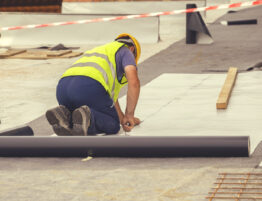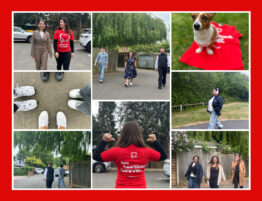
The physical and mental health of our team is always important to us. That’s why, since World Mental Health day last year, we’ve occasionally used this blog to publish a series of quick tips and advice around mental health and wellbeing.
By no means are we experts in this field, so we’ve taken inspiration from the charity MIND, the NHS and various other sources to bring these tips to you.
So far, we’ve looked at workplace wellbeing, stress and relaxation.
In the fourth blog of this series we’re talking all about Mindfulness.
So what is Mindfulness?
Mindfulness is a technique which can help people manage their mental health, gain more enjoyment from life and come to a better understanding of themselves. Its basic idea is to pay more attention to what’s going on in the present – in your thoughts, feelings, bodily sensations and the world around you.
How to be more mindful
Increase your awareness
It’s very easy to rush through life without stopping to really notice what’s going on moment-by-moment.
The first step towards mindfulness, therefore, is to remind yourself to pay more attention to what is happening in the present moment. Notice what is happening in your body, your mind and in your immediate surroundings in a curious and non-judgemental way. Reconnecting with the present moment means waking up to the sensations, sights, sounds, smells and tastes you experience.
Wandering mind?
 Some people find it really difficult to practice mindfulness. Every time they try to stop and be ‘in the moment’, thoughts, worries or ‘to do’ lists flood into their mind.
Some people find it really difficult to practice mindfulness. Every time they try to stop and be ‘in the moment’, thoughts, worries or ‘to do’ lists flood into their mind.
Don’t get annoyed with yourself if this happens to you. Notice when your mind wanders and where your thoughts have drifted to, then actively choose to bring your attention back to the present moment, for instance by focusing on your breathing or surroundings. Some people find it easier to cope with an overcrowded mind if they combine mindfulness with gentle exercise like yoga or walking.
Go slowly
New skills can take time to develop and even longer to master. Try a few minutes of mindfulness at first and gradually build it up.
Build it into your routine
It can be helpful to pick a particular activity and/or regular time to practice mindfulness. Decide on one or two activities which you will do mindfully each day. It could be focusing on the sensations of brushing your teeth in the morning, listening to the kettle as it boils or being aware of the sensations created by the world around you during your journey to work.
Try a mindfulness exercise
You may find it easier to be guided by a pre-set mindfulness exercise like guided mediation or breathing. There are tons of apps, CDs and online programmes which can help you with this.
Try watching this short mindful breathing exercise video on YouTube from Every Mind Matters.
Find a course or practitioner
As well as practising mindfulness in your everyday life, you might want to set aside some time for more formal mindfulness practice by either joining a group setting, following an online course or seeking one-to-one help. You could speak to your GP, local MIND or carry out your own search to find out more about the services available in your area.
Be Mindful is one example of an online course for reducing stress, anxiety and depression, run by the Mental Health Foundation.
 Be kind to yourself
Be kind to yourself
If you find mindfulness frustrating or that it’s simply not for you, try not to be critical of yourself. You can always try other ways of looking after your wellbeing such as talking therapies, arts therapy , other relaxation techniques or physical activity.
That’s all for now
We hope that the four blogs around better mental health which we’ve shared over the last few months have been useful. In case you missed any, here they are again:
We’ll probably come back to this issue again in the future but this blog was the last one in this series for now. Meanwhile, if there’s something you do (or have done) which has helped you maintain positive mental health, share your ideas and experiences with us over on Facebook.
22.01.2020
*information adapted from MIND and NHS.
Image source: Freepik








